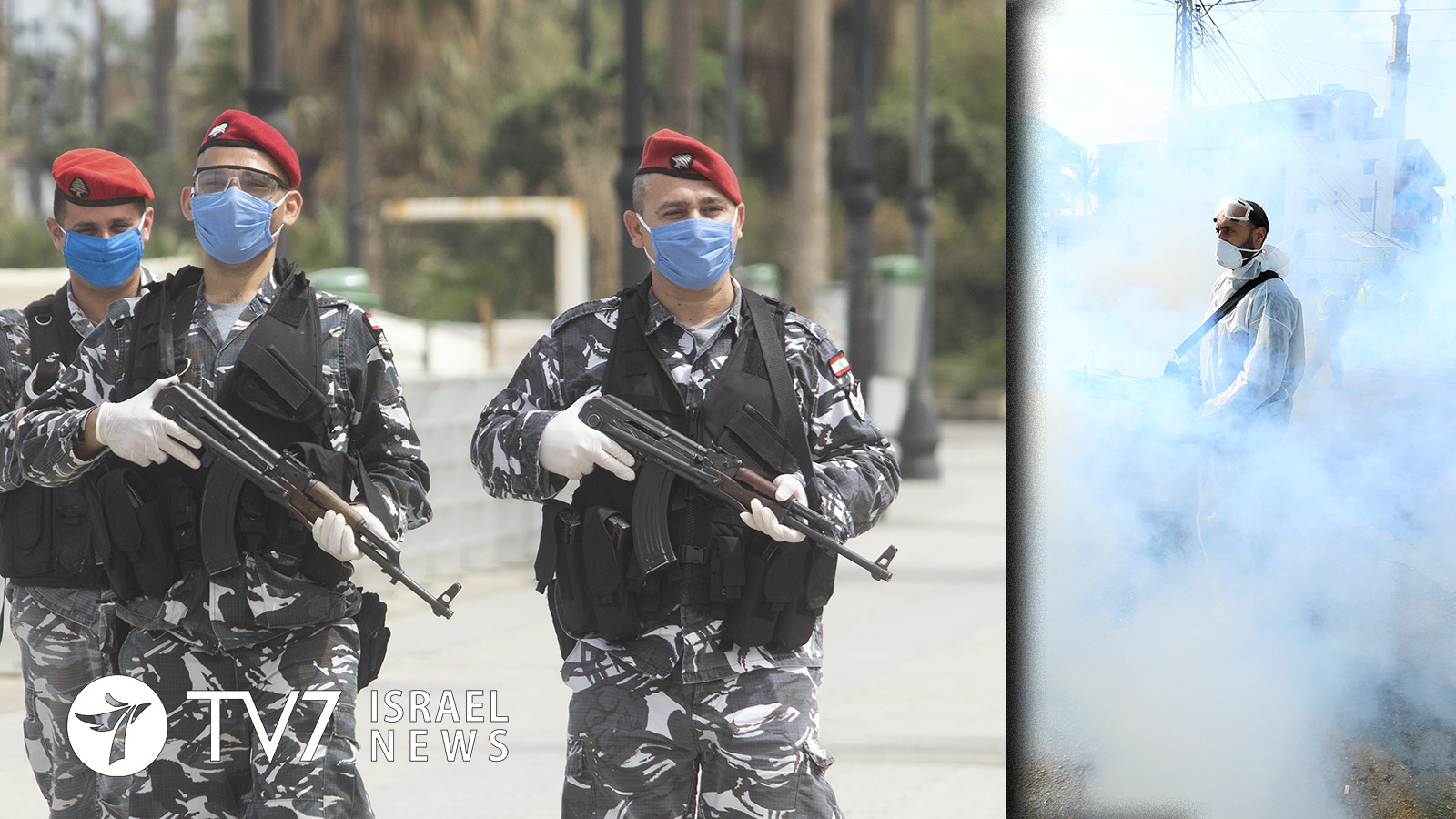Several of Lebanon’s citizens have adamantly declared that they will not abandon their anti-government demonstrations despite the nationwide coronavirus lockdown.
Experts warn the country’s healthcare system is ill-prepared, as critical equipment is in short supply following months of financial crisis and a severe dollar shortage.
Few remain in Beirut’s Martyr’s Square, a focal point of anti-government protests in recent months, but those who have remained say their sit-in will continue undeterred by the disease.
42-year-old Abu Hassan told Reuters that he has been there since the first day of the protests in October 2019 against government plans to increase taxes and ballooned into nationwide unrest that persisted for months. “I want to tell you something, in general, everyone is afraid of the coronavirus,” he admitted, before insisting, “As you can see here, we have started the safety precautions even before the government announced measures. And as you can see, we disinfect daily.”
The number of protesters in the square has dwindled to a minimum because of the coronavirus shut down and the dismantlement of many of the tents by Lebanese security forces, who also reopened roads blocked by demonstrators.
Abu Hassan nevertheless insists that anti-government sentiment is rising not diminishing, and that the demonstrations will eventually resume due to the dire financial crisis hitting the country which has led to thousands of job losses and drastic increases in prices. “As for the revolutionaries, we are staying here,” he said, adding “because there are more pressing things (than the virus) – the situation cannot withstand anymore.”
Lebanon’s new Prime Minister Hassan Diab asked the security forces to enforce stricter measures to keep people at home and prevent gatherings to rein in the coronavirus outbreak on 21 March. In an address to the nation, Diab said this would include patrols and checkpoints.
The Health Ministry last week recorded a 29% rise in cases in one day compared to the day before, prompting the government’s stricter response. Lebanon now has 446 confirmed cases of coronavirus and 11 deaths.
Other anti-government activists say that their activism has shifted to fight against medical rather than political causes – for now.
Melissa Fathallah said, “We’ve been spending our time conducting revolution in another way, we have created awareness programs and we actually have been doing a lot of social media – and cyber wars as I call them – we took the first initiative to encourage and tell people to stay at home.”
Fathallah then asserted that she and other activists will be “back in the streets once it is all over.”
Lebanon’s government declared a medical state of emergency on 15 March and ordered most of the country closed down, including the airport. Prime Minister Diab authorized the security forces to enforce stricter measures to keep people at home and prevent gatherings. Armed police wearing protective face masks against COVID-19 have been filmed patrolling the formerly-popular Beirut seafront.
Diab has also called on the public to only leave their homes if absolutely necessary and warned that the rising number of infections “foreshadows an imminent danger threatening society.”
Lebanese grocery stores have introduced special shopping hours just for the elderly, while carts and all goods are being sanitized. Reuters cited one store owner, identified as Zakaria, saying, “Honestly, we can’t close because we need to meet people’s needs. At the same time, we are taking precautions: disinfecting all items customers are taking, and customers themselves are taking precautions too. As you can see, we are wearing gloves and face masks and we spray everything (with alcohol).” Elderly customer Nariman Chehab said that she has reduced her customary two-to-three times a week shopping trips down to just once to help avoid crowding, saying “I come, shop quickly and head back home. I am committed to self-quarantine for the general health.”
